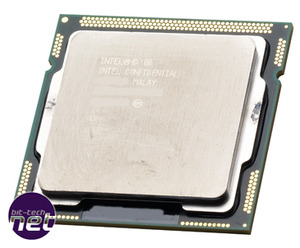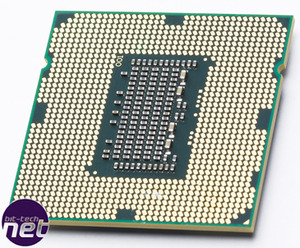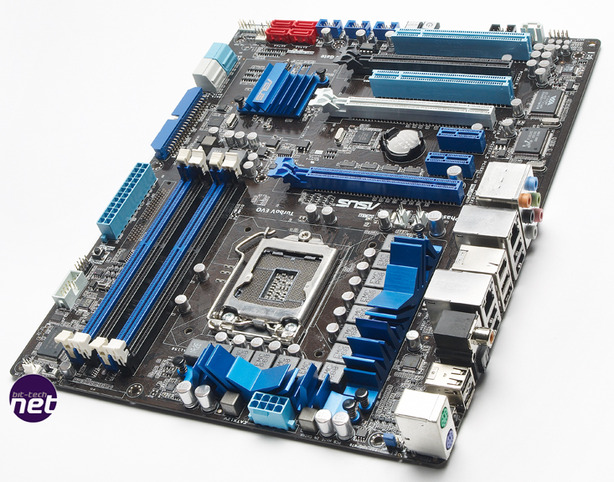Lynnfield LGA1156 CPUs
While it's been fashionable in some circles to complain about the high price of building a Core i7 system, Intel has always made it clear that this LGA1366 CPU plus triple-channel DDR3 platform isn't intended to replace Core 2 but to sit above it. With this in mind, Intel has been busy developing the true replacement for Core 2, codenamed Lynnfield, although Intel has revealed that, confusingly, some models will also be named Core i7.While some manufacturers showed early motherboards at the Computex trade show in June, this month we managed to secure the first working LGA1156 CPU and motherboard in the UK. It's worth pointing out that we're reporting on a Q-Spec engineering sample CPU and a pre-production motherboard, so some of the specs may be tweaked before the mass-production models arrive on the market in September.
Click to enlarge
Asus P7P55D Evo
So without any further ado, let us introduce you to the first working LGA1156 motherboard in the UK: the Asus P7P55D Evo. The name may be a mouthful, but it's actually quite simple. 'P7' denotes that the board is for LGA1156 CPUs (Asus uses 'P6' for LGA1366 motherboards), while 'P55' shows that it uses the Intel P55 chipset. The 'Evo' tacked onto the end of the name is a new suffix for Asus, and will be used for a new range of motherboards that will sit between the existing Deluxe and standard motherboard models.One of the biggest differences between LGA1366 and LGA1156 CPUs is that CPUs using the latter socket support cheaper dual-channel DDR3 rather than triple-channel DDR3. For this reason, the Asus P7P55D Evo has four DDR3 DIMM slots, with support for up to 16GB of memory running at up to 1,600MHz. Like most motherboards, the Asus P7P55D Evo supports various memory straps, and the early BIOS (v9999) we used allowed the RAM also to run at 1,066MHz and 1,333MHz.
Click to enlarge

MSI MPG Velox 100R Chassis Review
October 14 2021 | 15:04












Want to comment? Please log in.